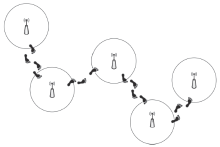信息网络安全 ›› 2016, Vol. 16 ›› Issue (4): 69-75.doi: 10.3969/j.issn.1671-1122.2016.04.011
公众环境下无线接入的安全问题研究
- 福建师范大学数学与计算机科学学院,福建福州350007
Research on Security Issues of Wireless Access in Public Environment
- College of Mathematics and Computer Science, Fujian Normal University, Fuzhou Fujian 350007, China
摘要:
移动互联网的快速发展和WiFi网络的日益普及,促使人们习惯通过各种WiFi热点接入因特网。然而,公众WiFi热点在提供便利的同时,也增大了网络安全风险。无线信号固有的辐射性、空间信道的开放性,以及公众无线热点本身的不可信等安全隐患,使得无线接入面临严重的安全问题。文章简单介绍了WiFi接入模型,并结合使用Wireshark等软件进行的实验,针对公众WiFi热点本身存在的不可信等问题,分别从数据内容、报文首部、域名系统以及个人隐私等方面,分析了公共环境下无线接入可能造成的网页内容推送时账户和密码明文传输泄露、用户使用浏览器时浏览行为轨迹泄露、网页数据内容被篡改、域名欺骗以及用户个人隐私暴露等安全问题,目的也是提高公众对无线接入的安全意识。
中图分类号:






























